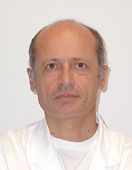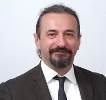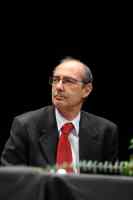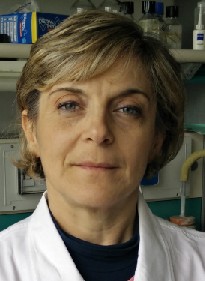Studying at the University of Verona
Here you can find information on the organisational aspects of the Programme, lecture timetables, learning activities and useful contact details for your time at the University, from enrolment to graduation.
Academic calendar
The academic calendar shows the deadlines and scheduled events that are relevant to students, teaching and technical-administrative staff of the University. Public holidays and University closures are also indicated. The academic year normally begins on 1 October each year and ends on 30 September of the following year.
Course calendar
The Academic Calendar sets out the degree programme lecture and exam timetables, as well as the relevant university closure dates..
| Period | From | To |
|---|---|---|
| 1 SEMESTRE PROFESSIONI SANITARIE | Oct 1, 2021 | Dec 23, 2021 |
| 1 e 2 SEMESTRE PROFESSIONI SANITARIE | Oct 1, 2021 | Sep 30, 2022 |
| 2 SEMESTRE PROFESSIONI SANITARIE | Jan 10, 2022 | Sep 30, 2022 |
| Session | From | To |
|---|---|---|
| Sessione Invernale 2 anno | Dec 13, 2021 | Jan 21, 2022 |
| Sessione Invernale 3 anno | Dec 15, 2021 | Jan 21, 2022 |
| Sessione Invernale 1 anno | Jan 10, 2022 | Feb 4, 2022 |
| Sessione Estiva 3 anno | May 18, 2022 | Jun 17, 2022 |
| Sessione Estiva 2 anno | Jun 17, 2022 | Jul 29, 2022 |
| Sessione Estiva 1 anno | Jul 11, 2022 | Aug 4, 2022 |
| Sessione Autunnale 1 anno | Aug 29, 2022 | Sep 30, 2022 |
| Sessione Autunnale 2 e 3 anno | Sep 1, 2022 | Sep 30, 2022 |
| Sessione di Appello Staordinaria | Dec 1, 2022 | Jan 31, 2023 |
| Session | From | To |
|---|---|---|
| Sessione Autunnale di Laurea | Oct 1, 2021 | Nov 30, 2021 |
| Sessione Primaverile di Laurea | Mar 1, 2022 | Apr 30, 2022 |
| Description | Period | From | To |
|---|---|---|---|
| Tirocinio 3 Anno 1^ Periodo 2021/22 | Tirocinio 3 Anno 1^ Periodo 2021/22 | Oct 25, 2021 | Nov 26, 2021 |
| Tirocinio 2 Anno 1^ Periodo 2021/22 | Tirocinio 2 Anno 1^ Periodo 2021/22 | Jan 24, 2022 | Feb 25, 2022 |
| Tirocinio 3 Anno 2^ Periodo 2021/22 | Tirocinio 3 Anno 2^ Periodo 2021/22 | Feb 28, 2022 | May 13, 2022 |
| Tirocinio 1 Anno 1^ Periodo 2021/22 | Tirocinio 1 Anno 1^ Periodo 2021/22 | Mar 14, 2022 | Apr 22, 2022 |
| Tirocinio 2 Anno 2^ Periodo 2021/22 | Tirocinio 2 Anno 2^ Periodo 2021/22 | May 9, 2022 | Jun 17, 2022 |
| Tirocinio 1 Anno 2^ Periodo 2021/22 | Tirocinio 1 Anno 2^ Periodo 2021/22 | May 30, 2022 | Jul 8, 2022 |
| Tirocinio 3 Anno 3^ Periodo 2021/22 | Tirocinio 3 Anno 3^ Periodo 2021/22 | Jun 20, 2022 | Jul 29, 2022 |
| Tirocinio 1 Anno 3^ Periodo 2021/22 | Tirocinio 1 Anno 3^ Periodo 2021/22 | Aug 29, 2022 | Sep 30, 2022 |
| Tirocinio 2 Anno 3^ Periodo 2021/22 | Tirocinio 2 Anno 3^ Periodo 2021/22 | Sep 1, 2022 | Sep 30, 2022 |
Exam calendar
Exam dates and rounds are managed by the relevant Medicine Teaching and Student Services Unit.
To view all the exam sessions available, please use the Exam dashboard on ESSE3.
If you forgot your login details or have problems logging in, please contact the relevant IT HelpDesk, or check the login details recovery web page.
Should you have any doubts or questions, please check the Enrollment FAQs
Academic staff
 francesco.antonucci@aocardarelli.it
francesco.antonucci@aocardarelli.it

Bisoffi Zeno
 zeno.bisoffi@sacrocuore.it
zeno.bisoffi@sacrocuore.it
 +390456013326
+390456013326
 martina.bonetti@apss.tn.it
martina.bonetti@apss.tn.it
 borghesi.a@mail.apss.tn.it
borghesi.a@mail.apss.tn.it
 fulviocampolongo@gmail.com
fulviocampolongo@gmail.com
 francesca.fontana@univr.it
francesca.fontana@univr.it
 renata.lazzeri@apss.tn.it
renata.lazzeri@apss.tn.it
 mattia.marchiori@univr.it
mattia.marchiori@univr.it
 loredana.pancheri@univr.it
loredana.pancheri@univr.it
Study Plan
The Study Plan includes all modules, teaching and learning activities that each student will need to undertake during their time at the University.
Please select your Study Plan based on your enrollment year.
1° Year
| Modules | Credits | TAF | SSD |
|---|
2° Year activated in the A.Y. 2022/2023
| Modules | Credits | TAF | SSD |
|---|
3° Year activated in the A.Y. 2023/2024
| Modules | Credits | TAF | SSD |
|---|
| Modules | Credits | TAF | SSD |
|---|
| Modules | Credits | TAF | SSD |
|---|
| Modules | Credits | TAF | SSD |
|---|
Legend | Type of training activity (TTA)
TAF (Type of Educational Activity) All courses and activities are classified into different types of educational activities, indicated by a letter.
Biomolecular fondamentals of life (2021/2022)
Teaching code
4S000089
Credits
4
Coordinator
Language
Italian
Also offered in courses:
- Propaedeutic physical and biological sciences - BIOLOGIA APPLICATA of the course Bachelor's degree in Physiotherapy
- Biomolecular fondamentals of life - BIOLOGIA APPLICATA E GENETICA of the course Bachelor's degree in Psychiatric Rehabilitation Techniques
The teaching is organized as follows:
Learning outcomes
Teaching aims to provide knowledge of human biology in an evolutionary vision with particular reference to the molecular and cellular processes common to all living organisms, to raise awareness of the structures and functions of biological macromolecules and the main metabolic pathways in which they are involved. The student should be able to explain the cellular mechanisms underlying the functioning of the whole organism and grasp the pathogenic meaning of any alterations of them; it should also be able to recognize the different ways in which Mendelian characters are transmitted in humans. BIOCHEMICAL MODULE Training objectives: The course aims to present the relationship between the structure and function of biological macromolecules and the main metabolic pathways in which they are involved. The key objective is to stimulate the student's interest in biomolecular sciences by giving maximum prominence to the interconnections between biochemical processes and the energy variations associated with them. At the end of the teaching, students will have to demonstrate that they have acquired terminology and useful knowledge for a critical analysis of vital biochemical processes in order to achieve autonomy of critical and comprehensive evaluation of the processes themselves. APPLIED BIOLOGY MODULE Training objective: Providing knowledge of human biology in an evolutionary vision with particular reference to the molecular and cellular processes common to all living organisms. Provide knowledge about the mutagenic action of chemical and physical agents. Provide knowledge about the transmission of hereditary characters. The student should be able to explain the cellular mechanisms underlying the functioning of the whole organism and grasp the pathogenic meaning of any alterations of them; students must also be able to recognize the different ways in which Mendelian characters are transmitted in humans. At the end of the teaching, students will have to demonstrate that they have acquired the basic knowledge of the mechanisms that govern life and cell reproduction, the interactions between cells, between organisms and between organisms and the environment. They will also need to demonstrate to have acquired knowledge about the mechanisms of transmission of hereditary characters and will have to be able to recognize how genetic diseases are transmitted in humans, particularly those relating to tooth development and structure. These basic knowledge is a prerequisite for further specialist insights that will be the subject of teachings in the following years of the Course.
Program
------------------------
MM: BIOCHIMICA
------------------------
------------------------
MM: BIOLOGIA APPLICATA
------------------------
• Characteristics of the living beings, their hierarchical organization and classification into Kingdoms and Domains. Origin of life on earth and cell theory. • The properties of water. Comparison between prokaryotic and eukaryotic cell and viral agents. The endosymbiotic theory, the evolution from prokaryotes to eukaryotes up to multicellular organisms. Darwinian concept of evolution, neo-Darwinism and scientific evidence of the continuity of life on earth. • Main structural and functional characteristics of the cell, organelles and cytoskeleton, with particular attention to the roles of the different cell compartments and their interconnections. • Biological membranes: structure and proposed models; passage of materials across cell membranes: passive transport (facilitated diffusion and simple), osmosis, directly and indirectly active transport, co-transport. Exocytosis and endocytosis. Anchoring, tight and gap cell junctions in animal and plant cells. • Cell communication: types of cellular communication: endocrine, paracrine, autocrine and iuxtacrine. Different ligand molecules and receptors. Signal amplification and second messengers. Sending and receiving the signal, cellular response. • Organization of DNA in chromosomes, mitosis and meiosis. DNA and proteins, nucleosomes, heterochromatin, euchromatin, chromosome condensation. The cell cycle and its regulation. Mitosis, meiosis and sexual reproduction • DNA and its role in heredity. DNA structure and replication. • Gene expression: transcription, genetic code and translation. Gene definition. • DNA mutations and mutagenesis • Hereditary character transmission and Mendel’s laws; definition of phenotype, genotype, locus, gene, dominant and recessive allele, homozygosity and heterozygosity. Segregation and independent assortment. Chromosomal basis of heredity. Independence and association. Crossing-over and recombination. Genetic determination of sex. Dosage compensation in Mammals. Gene interactions. Incomplete dominance, codominance, multiple alleles, epistasis and polygenic inheritance, variable expressivity and penetrance. • The human genome: karyotype analysis and pedigrees; autosomal recessive, autosomal dominant, X-linked diseases. DIDACTIC METHOD Attendance to lessons is mandatory. Teaching methods consist of frontal lessons. In addition to the suggested texts, additional didactic supports are offered on the e-learning platform of the course. Students can make an appointment directly with the teacher every time they need it throughout the academic year, by email. Students are invited to choose a book among those indicated.
Bibliography
Examination Methods
Goal of the exam for the Course of Biomolecular fondamentals of Life: to verify students' advanced comprehension of the whole program topics and their capability to expose their reasoning in a critical and precise manner using appropriate scientific terms.
6 examination sessions are foreseen in the whole Academic Year: 2 in the Winter Session after the Course ending, 2 in the Summer Session, and 2 in the Autumn session.
Students will undertake both modules (written test made of multiple choice quizzes and open questions) if they have attended at least 75% of the frontal teaching activity of the entire Course; further information about exam organization is available in each module form.
The final mark (/out of 30) will derive from the evaluation of both modules. Students will pass the examination if the overall rating of both modules, based on the weighted average of credits, is greater than or equal to 18/30. Students can retire or refuse the proposed mark.
Students who do not pass both exam modules in the same session will have to take the missing/insufficient module in one of the subsequent sessions, if only within the extra winter session of the next Academic Year. From the next summer session, students will need to take both modules.
Career prospects
Module/Programme news
News for students
There you will find information, resources and services useful during your time at the University (Student’s exam record, your study plan on ESSE3, Distance Learning courses, university email account, office forms, administrative procedures, etc.). You can log into MyUnivr with your GIA login details: only in this way will you be able to receive notification of all the notices from your teachers and your secretariat via email and soon also via the Univr app.
Gestione carriere
Orario Lezioni
Documents
| Title | Info File |
|---|---|
|
|
pdf, it, 459 KB, 22/09/23 |
|
|
pdf, it, 513 KB, 26/01/24 |
|
|
pdf, it, 498 KB, 23/02/24 |
|
|
pdf, it, 478 KB, 26/01/24 |
|
|
pdf, it, 1228 KB, 25/01/23 |
|
|
pdf, it, 1453 KB, 07/02/24 |
Graduation
Documents
| Title | Info File |
|---|---|
|
|
pdf, it, 714 KB, 13/11/23 |
Student login and resources
in questa sede verranno pubblicati i calendari delle lezioni

















